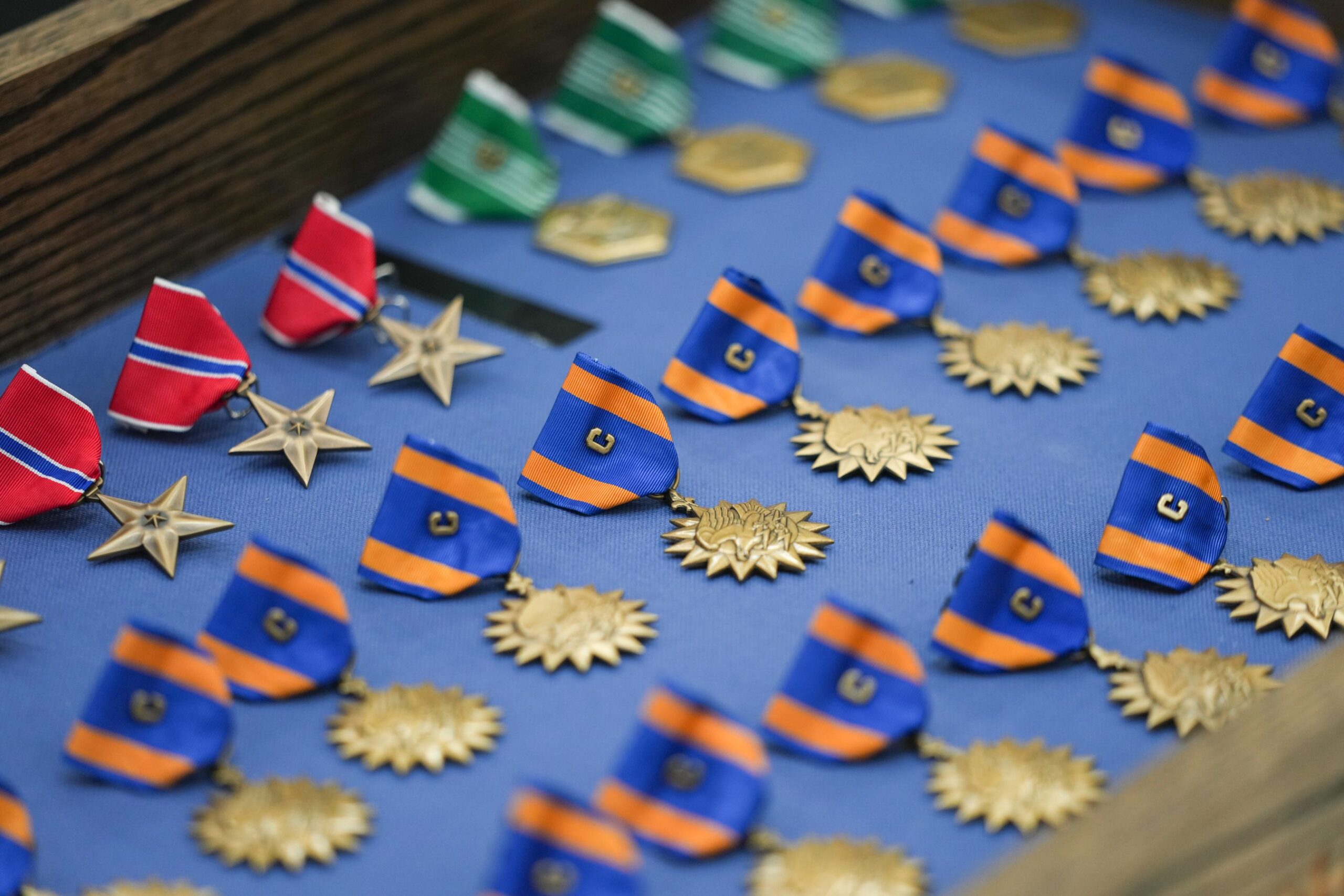More than 50 of the Army’s most elite aviators and their support personnel received combat or valor awards recently in a ceremony at Fort Campbell, Kentucky.
The newly-decorated members of the 160th Special Operations Aviation Regiment, known as the Night Stalkers, were recognized on Feb. 16 for their participation in four different operations between 2019 and 2022, commander Col. Roger Waleski told Army Times in a Tuesday phone interview. The storied unit provides aviation support to special operators throughout the military, including high-stakes efforts such as the 2011 raid in Abbottabad, Pakistan that killed Osama Bin Laden.
RELATED
:quality(70)/cloudfront-us-east-1.images.arcpublishing.com/archetype/RKUPAH2SZNGDDAO236DFAUVAWA.jpg)
Lt. Gen. Jonathan Braga, the top general for Army Special Operations Command, led the group ceremony. Officials said 54 soldiers received 75 awards, including 11 Distinguished Flying Crosses with valor devices, seven Bronze Stars, seven Air Medals with valor devices, 43 Air Medals with combat devices and four Army Commendation Medals with combat devices. Recipients ranged in rank from specialist to colonel.
Lt. Gen. Jonathan Braga, the commander of Army Special Operations Command, presents an award to a member of the 160th Special Operations Aviation Regiment during a ceremony at Fort Campbell, Kentucky, on Feb. 16, 2023. (160th Special Operations Aviation Regiment/Army)
Waleski indicated that a “significant number of awards” went to the regiment’s participants in the U.S. military’s withdrawal from Afghanistan and the evacuation operation at Hamid Karzai International Airport in Kabul. Although many of the Night Stalkers’ missions are cloaked in secrecy, the website The Drive previously reported the unit’s specially-modified helicopters were present during the evacuation, and other stories have emerged referencing their participation.
The Global War on Terror is virtually over for conventional troops, whose role in the remaining hotspots has shrunk so greatly that the National Defense Service Medal and Global War on Terrorism Service Medal are no longer awarded to new troops. But the work continues for the Army’s special operations aviators, Waleski emphasized.
“[We’re] an organization that is still very relevant in today’s affairs,” the commander asserted. “Even though we think that the War on Terror may be over, violent extremism is still alive and well in the world.”
In recent years, members of the regiment have reportedly participated in missions in Syria that resulted in the deaths of key Islamic State terrorist leaders — including the 2019 raid that killed ISIS founder Abu Bakr al-Baghdadi.
A member of the 160th Special Operations Aviation Regiment receives a Distinguished Flying Cross with valor device during a ceremony at Fort Campbell, Kentucky, on Feb. 16, 2023. (160th Special Operations Aviation Regiment/Army)
“The majority of the awards were from countering violent extremist organization-type operations within the [U.S. Central Command area of responsibility],” which includes Egypt, southwest Asia and portions of central Asia, Waleski acknowledged. “These are missions that are in highly-complex environments. They are operations against determined enemies of the United States and our allies and our interests.”
The colonel also noted the regiment’s importance in preparing for large-scale combat against a foe like Russia or China, in addition to their role in operations that occur before shooting starts.
But the event, which included family members and community leaders, was about recognizing soldiers whose accomplishments may otherwise go unspoken, Waleski said. He reflected on the impact such ceremonies have on families who may not realize “the sort of things that [soldiers are] doing when…overseas,” adding that in-person events also can foster community among families that was difficult to replicate during the pandemic.
“It shows you what Night Stalkers and the [special operations] community are still doing overseas,” he noted. “It’s still dangerous, and they’re still serving the nation with honor.”
Davis Winkie is a senior reporter covering the Army, specializing in accountability reporting, personnel issues and military justice. He joined Military Times in 2020. Davis studied history at Vanderbilt University and UNC-Chapel Hill, writing a master’s thesis about how the Cold War-era Defense Department influenced Hollywood’s WWII movies.

